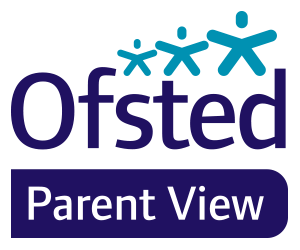Careers Education at Abbot’s Lea School
At Abbot’s Lea School, we are committed to changing the national narrative that sees fewer than 6% of people with Special Educational Needs and Disabilities (SEND) in paid employment. Our vision is to significantly increase the opportunities our students have to secure quality, paid employment after education.
We achieve this by delivering consistent, high-quality careers education tailored to each student’s individual needs and circumstances. Every student receives personalised Independent Careers Information, Advice and Guidance (CIAG), ensuring that their aspirations are supported meaningfully.
Our careers education programme is built around the Gatsby Benchmarks:
1. A Stable Careers Programme
We deliver a structured, whole-school careers programme that is regularly reviewed and adapted to meet the needs of our students with SEND.
2. Learning from Career and Labour Market Information
Students and families receive up-to-date information about the world of work, including local labour market trends and opportunities.
3. Addressing the Needs of Each Student
Careers education is personalised and embedded within EHCP planning, ensuring every student’s unique strengths and aspirations are supported.
4. Linking Curriculum Learning to Careers
We embed employability skills and career relevance across subjects, helping students understand how their learning connects to future opportunities.
5. Encounters with Employers and Employees
Students engage with a range of employers through inspiration days, workplace visits, and guest speakers, helping them build confidence and ambition.
6. Experiences of Workplaces
We provide meaningful work experience placements, both on-site and off-site, supported by job coaching and tailored preparation.
7. Encounters with Further and Higher Education
Students explore a variety of post-16 and post-19 pathways through visits, workshops, and guidance from external providers.
8. Personal Guidance
Every student receives individual careers guidance from a qualified advisor, ensuring informed decision-making and future planning.
We are proud to be a member of the Liverpool City Region Careers Hub, strengthening our commitment to preparing students for life beyond school and ensuring full compliance with the Provider Access Legislation (PAL).
Strategic Approach to Improving Employment Outcomes
Improving employment outcomes for students with SEND is a strategic priority at Abbot’s Lea School. This commitment is not only a moral imperative—it also ensures compliance with the Provider Access Legislation (PAL), formerly known as the Baker Clause. PAL requires schools to provide students with access to a range of education and training providers, including employers, to support informed choices about their future pathways.
To meet this goal, we have developed a comprehensive strategy:
Staff Training and Awareness
- Safeguarding and Employment-Focused CPD: Integrating employment readiness into safeguarding training to help staff support students’ aspirations and overcome barriers to work.
- Inclusive Careers Education: Equipping staff to deliver differentiated careers guidance aligned with EHCP outcomes and individual pathways.
Curriculum and Pathway Development
- Work-Related Learning: Embedding employability skills across the curriculum, including communication, teamwork, and problem-solving.
Employer Engagement and Partnerships
- Local Business Links: Building relationships with inclusive employers across Liverpool and Merseyside to create supported internships, work experience, and job coaching opportunities.
- Employer Training: Providing SEND awareness sessions to employers to reduce stigma and increase confidence in hiring neurodiverse individuals.
Student-Centred Planning
- Person-Centred Reviews: Using EHCP annual reviews to set employment-related goals and track progress.
- Job Coaching and Transition Support: Offering tailored support for students transitioning from school to work, including travel training and workplace social skills.
Data and Impact Monitoring
- Tracking Destinations: Monitoring post-16 and post-19 outcomes to identify trends and gaps.
- Using Data to Drive Change: Sharing employment data with governors and stakeholders to advocate for resources and policy improvements.

